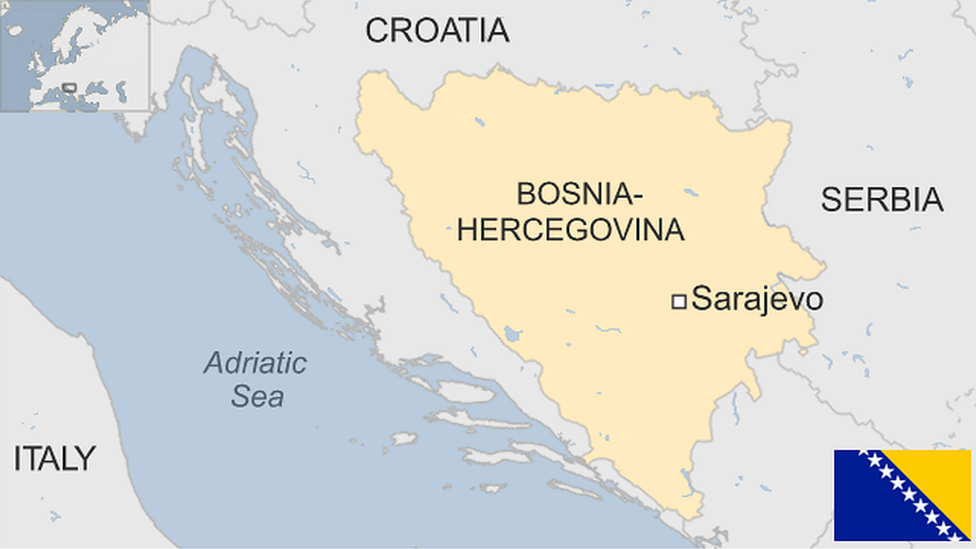Bosnian protests: A Balkan Spring?
- Published
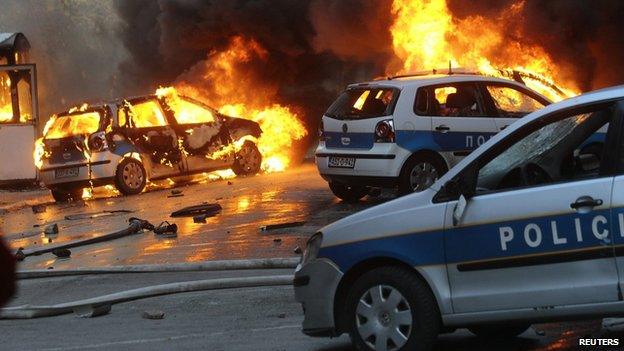
Police have condemned the protesters as "hooligans"
For years the best description of the political situation in Bosnia-Hercegovina has been "stagnant but stable".
Now, with astonishing speed, analysts are already talking about a "Bosnian Spring".
In Tuzla, Mostar, Zenica and Sarajevo, government buildings have been set on fire and there have been demonstrations across much of the rest of the country. Hundreds have been injured, including policemen.
Politicians have condemned "hooligans" for the violence but many are frightened.
Pictures have gone viral of cars, allegedly belonging to politicians, which have been tipped into a canal in Zenica.
The trouble began in the northern town of Tuzla on Wednesday. Workers from several factories which were privatised and which have now gone bankrupt united to demand action over jobs, unpaid salaries and pensions.
The workers were joined by students and political activists. After they began stoning the local court, violence broke out.
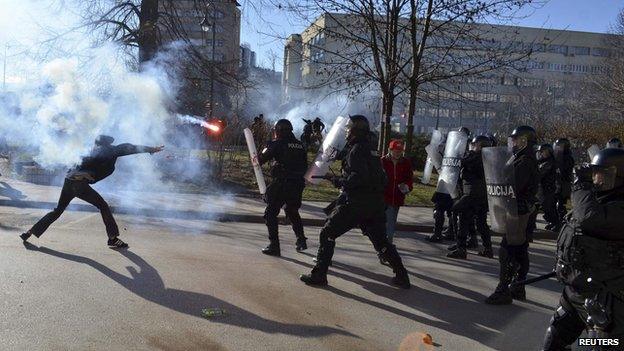
Unemployment is high in Bosnia-Hercegovina
Bosnia's four-year war ended in 1995, and since then there have been few protests over social issues.
Up to 2006, there was progress in making Bosnia something of a more functional state. But ever since, Bosnian politics have been in a state of utter stalemate and like the rest of the western Balkans, the country has been hit hard by years of economic crisis.
Bankruptcies
Unemployment is running at 27.5%, and none of the economic indicators point to anything like a serious recovery.
Old socialist-era industries, which dominated towns like Tuzla, were often left as shells after the war. Privatisations were often corrupt, with well-connected people buying companies to strip of them of their assets to make a quick profit - before declaring them bankrupt.
For years, Bosnians have fumed about their politicians - whom they almost universally believe to be corrupt.
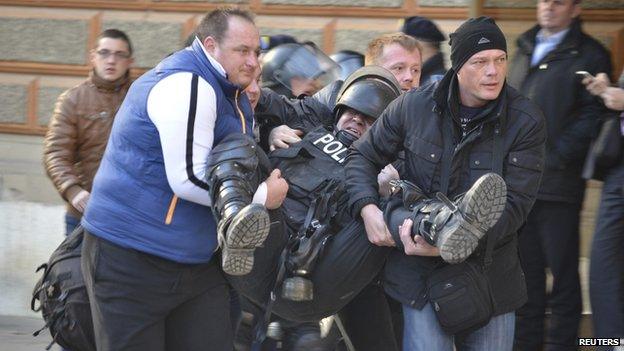
Tens of police officers were injured in Friday's protests
But the war left people apathetic, frightened and cynical.
Indeed, the war years left such deep traumas that anger about the way politicians have prospered while standards of living have declined has been suppressed out of fear of a return to conflict.
Dysfunctional state
Bosnia's basic political problem is that the war left its people with a dysfunctional state.
The country is divided into two main parts. Half the country is the Serbian-dominated Republika Srpska, whose leader Milorad Dodik wants it to become an independent state.
The other half is called the Federation and is comprised of ten cantons, which are either dominated by Bosniaks (who used to be called Bosnian Muslims) or Bosnian Croats. Each canton has its own government, which is then superimposed over local, city and town councils.
Finally, one town, Brcko, is an autonomous entity.
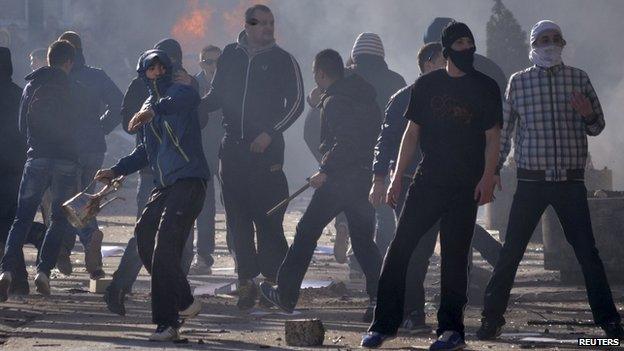
This week's protests mark the worst unrest since the end of the Bosnian war
With only some 3.8m people, it is sometimes said that what Bosnia really needs is actually just a mayor, but ethnic divisions mean it has proved impossible to change the situation.
Indeed, ever since 2009 Bosnia's leaders have been preoccupied with the so-called "Sejdic-Finci question," which while important in and of itself, is of no relevance to most people, who are worried about schools, jobs and health care.
Under the terms of the Dayton peace accords, which ended the war in 1995, certain key jobs, such as being a member of the country's tripartite presidency, are reserved for Serbs, Croats and Bosniaks only.
This was successfully challenged at the European Court of Human Rights by Jakob Finci and Dervo Sejdic, who are Jewish and Roma respectively.
Neglected economy
Ever since then, European and American officials have tried everything to cajole Bosnia's leaders to adapt the constitution - but they have had no success.
However, issues such as these have sucked the air out of political debate - meaning that the economy is always neglected.
All Balkan countries, including Croatia, which joined the European Union last year, have been hit by the economic crisis and share many of the same problems.
But in Bosnia the legacies of the war mean that few even hope for change anymore. For this reason, anger has been simmering for years, but now it has boiled over.
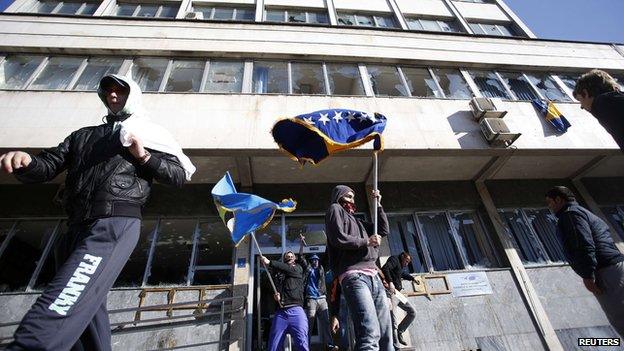
The protests broke out in the northern town of Tuzla
But will the protests actually change anything?
Two important points. Firstly, social protests in summer in Sarajevo fizzled out very quickly, despite much excitement.
Secondly, up to now, the protests are mostly a Bosniak affair.
While the protesters have been avowedly anti-nationalist, so far they have not spread to the Republika Srpska or to predominantly Croat areas, even though economically everyone in Bosnia faces exactly the same problems.
Big year
This year three big events are on the Bosnian calendar. It will hold elections, its mostly (but not entirely) Bosniak-supported football team will play in the World Cup, and Sarajevo will commemorate the 100th anniversary of the event that changed the world - the assassination of the Archduke Franz Ferdinand in June 1914 which sparked the First World War.
It is still far too early to say whether 2014 will one day be remembered as the year that changed Bosnia. But today hope is running high.
"My impression is that there is no going back now," says Dusica Ikic-Cook, a business administrator in Tuzla.
"I believe we will get results, even if only in the Federation to kill this huge administration which is sucking up all our money."
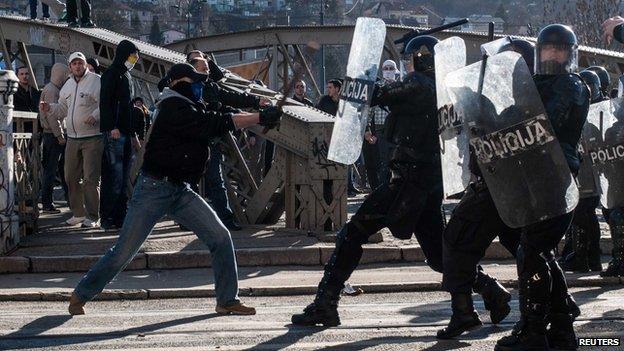
So far the protests have not spread to Serb areas
- Published7 February 2014
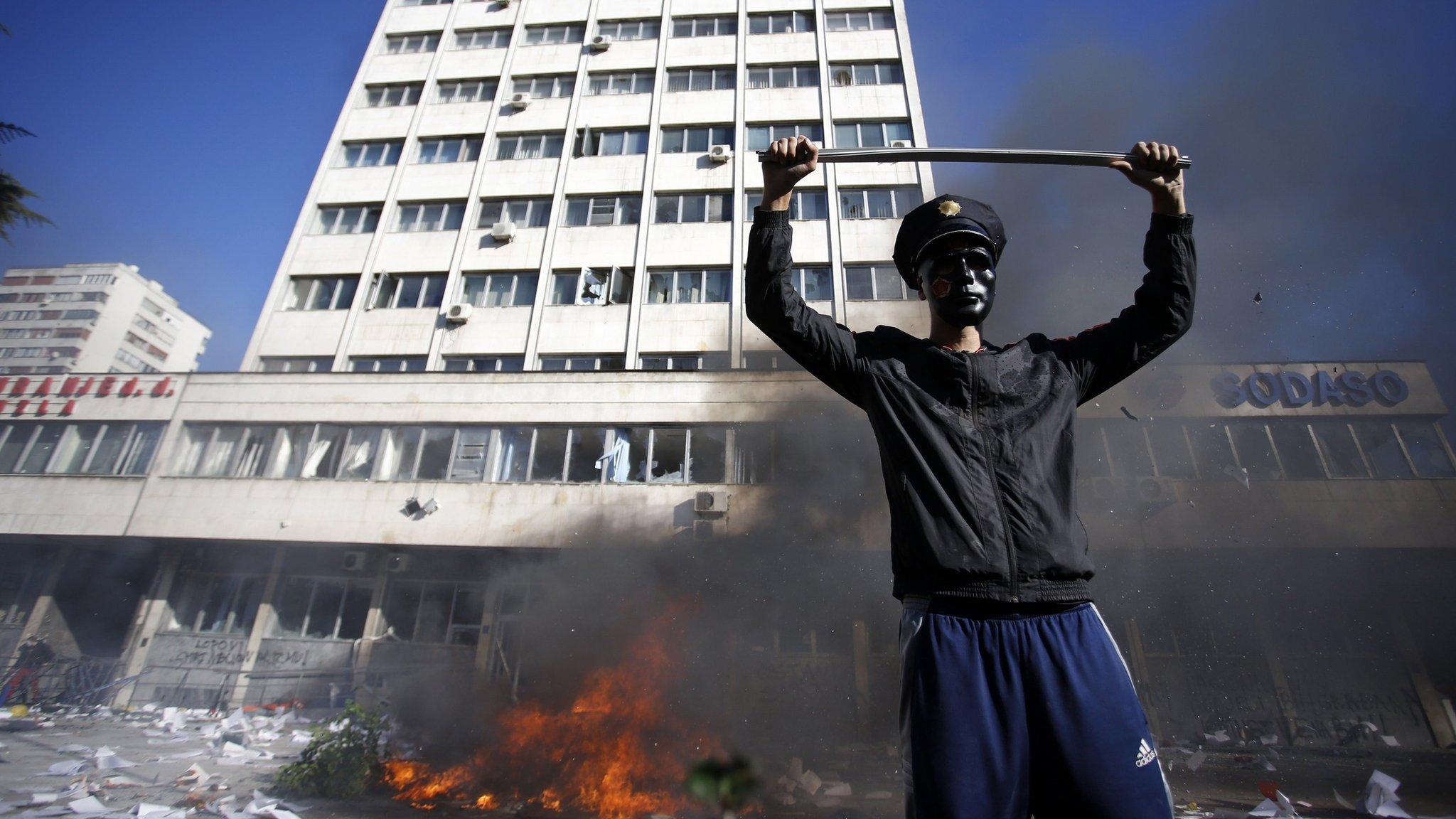
- Published7 February 2014
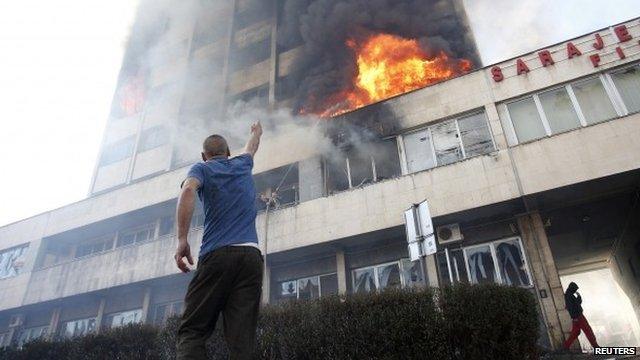
- Published7 February 2014
- Published10 June 2013
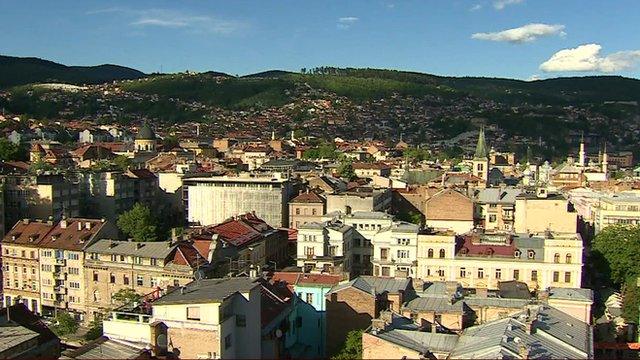
- Published7 February
